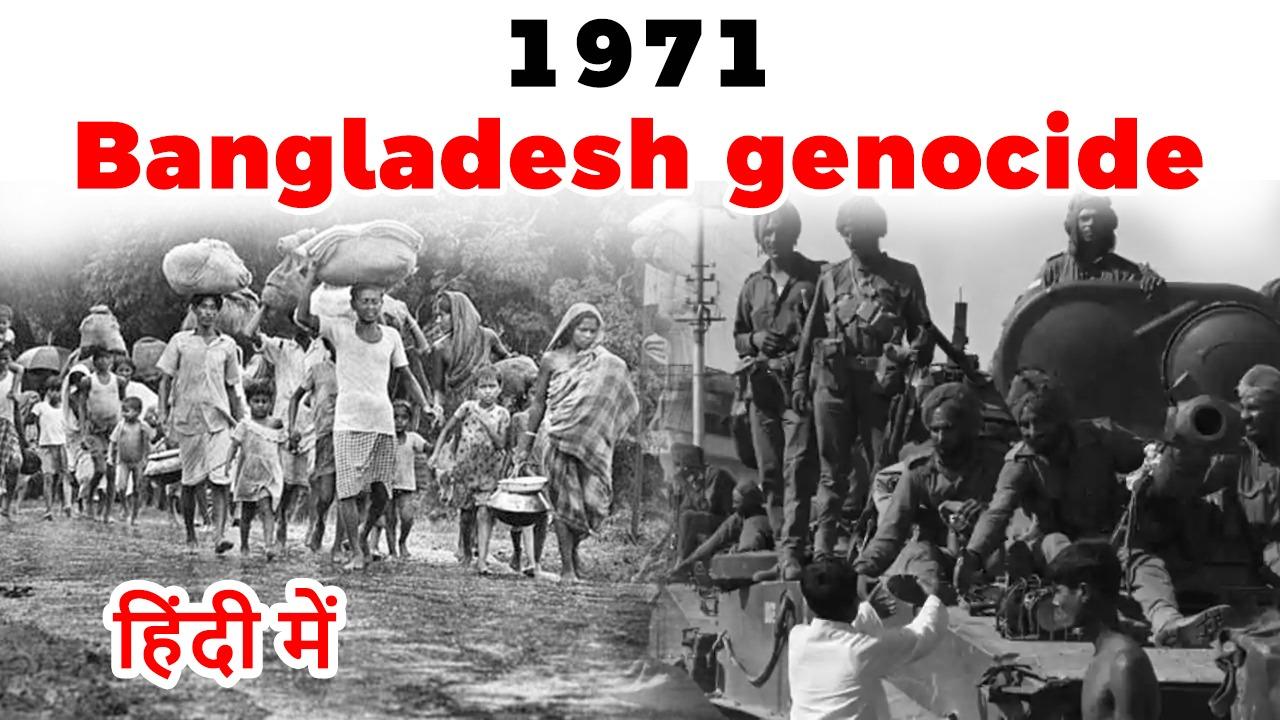Table of Contents
BACKGROUND
- Following the partition of India, the new state of Pakistan represented a geographical anomaly, with two wings separated of Indian territory.
- The wings were not only separated geographically but also culturally. The authorities of the West viewed the Bengali Muslims in the East as “too Bengali” and their application of Islam as “inferior and impure”, believing this made the Bengalis unreliable “co-religionists”.
- To this extent politicians in West Pakistan began a strategy to forcibly assimilate the Bengalis culturally.The West considered the people of the East to be second-class citizens.
BACKGROUND
- In 1948, a few months after the creation of Pakistan, Governor-General Mohammad Ali Jinnah declared Urdu as the national language of the newly formed state, although only four per cent of Pakistan’s population spoke Urdu at that time.
- A 1952 protest in Dhaka, the capital of East Pakistan, was forcibly broken up, resulting in the deaths of several protesters.
- The Indo-Pakistani War of 1965 caused further grievances.The East Pakistan-based Awami League, headed by Sheikh Mujibur Rahman , won a national majority in the first democratic election in 1970.
OPERATION SEARCHLIGHT
- Operation Searchlight was a planned military operation carried out by the Pakistani Army to curb elements of the separatist Bengali nationalist movement in East Pakistan in March 1971.
- On 1 March 1971 East Pakistan governor Admiral Syed Mohammed Ahsan was replaced after disagreeing with military action in East Pakistan.
- His successor Sahibzada Yaqub Khan resigned after refusing to use soldiers to quell a mutiny and disagreement with military action in East Pakistan.
- On the night of 25 March 1971 the Pakistani Army launched Operation Searchlight. Time magazine dubbed General Tikka Khan, the “Butcher of Bengal” for his role in operation Searchlight.
OPERATION SEARCHLIGHT
- Teachers of Dhaka University were killed in the operation by the Pakistani Army. Sheikh Mujib was arrested by the Pakistani Army on 25 March.
- The original plan envisioned taking control of the major cities on 26 March 1971, and then eliminating all opposition, political, or military,within one month.
- The main phase of Operation Searchlight ended with the fall of the last major town in Bengali hands in mid May. The first report of the Bangladesh genocide was published by West Pakistani journalist Anthony Mascarenhas in The Sunday Times, London on 13 June 1971 titled “Genocide”. GENOCIDE
- Bangladeshi authorities claim that as many as 3 million people were killed, although the Hamoodur Rahman Commission, the official Pakistani government investigation, claimed the figure was only 26,000 civilian casualties.
- Independent researchers have estimated the death toll to be around 300,000 to 500,000 people while others estimate the casualty figure to be 3 million.
- The United States intelligence agency, the CIA and the State Department estimated that 200,000 people had been killed in the genocide.
TARGETED INTELLECTUALS
- The most extreme cases of targeted killing of intellectuals took place during the last few days of the war.
- Professors, journalists, doctors, artists, engineers and writers were rounded up by the Pakistani Army and the Razakar militia in Dhaka, blindfolded, taken to torture cells in Mirpur, Mohammadpur, Nakhalpara, Rajarbagh and other locations in different sections of the city to be executed.
RAPES
- During the 1971 Bangladesh war for independence, members of the Pakistani military, and Razakar raped between 200,000 and 400,000 Bangladeshi Muslim women and girls in a systematic campaign of genocidal rape.
- The activists and leaders of Islamic parties are also accused to be involved in the rapes and abduction of women.
- Scholars have suggested that rape was used to terrorise both the Bengali-speaking Muslim majority and the Hindu minority of Bangladesh.
- RAPES
- Those rapes apparently caused thousands of pregnancies, births of war babies, abortions, infanticide, suicide, and ostracisation of the victims.
- During the war, Bengali nationalists also committed mass rape of ethnic Bihari Muslim women, since the Bihari Muslim community supported Pakistan.
- In 2009, almost 40 years after the events of 1971, a report published by the War Crimes Fact Finding Committee of Bangladesh accused 1,597 people of war crimes, including rape.
Indian History | Free PDF






















 WhatsApp
WhatsApp